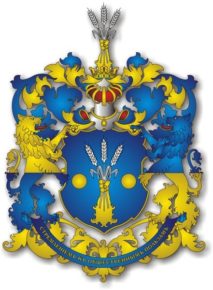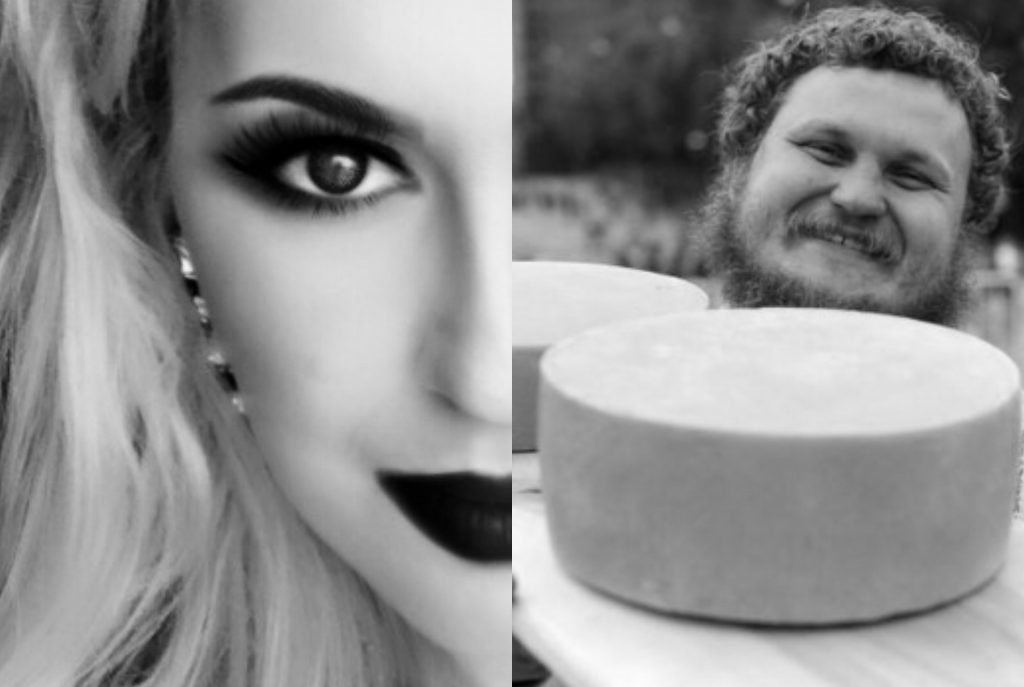INTERVIEW. The famous cheese maker and Russian traditions keeper Oleg SIROTA, now a bronze medalist (with two medals) at the 14th Cheese Olympiad in Austria, gave an exclusive interview to journalist Sofia TERESHCHENKO, telling her all about his cheese, how to distinguish quality cheese from a low-quality cheese, about import substitution, on whether he is going to make Greek feta cheese, how an ordinary European can get to his farm, his plans for the future, as well as about “the Putin, the Kremlin and a “naive farmer”.
S: Oleg, what is a quality cheese and how to distinguish it from a bad product?
O: The price, a good cheese cannot be cheap, on the Russian market the price of the cheese made of milk (yeah yeah, we often see palm oil products instead of cheese) is at least 550 rubles on a store shelf, and a price for a farm cheese, on average, is around 1000 rubles. The second factor is that it is almost impossible to fake a cheese flavor, a good cheese should smell, and not be a remnant without a color, taste and smell.
S: Why did you decide to make your business in cheese production?
O: It was my dream, a farm and a cheese factory, to revive at least some small piece of Russian village, but I was able to realize it only thanks to the imposition of sanctions on Western cheeses. My dream became real and I ran to fulfill it.
S: How much cheese do you produce per day, per month, per year? And what kind of cheese do you produce?
O: It is difficult to say how much cheese we produce per year, because we are constantly growing. Over the past year, we have doubled. Now we are making 7 tons of milk – this is 700 kg of cheese. We make hard and semi-hard cheeses, similar to good European cheeses, from the very real gouda, which is made only on small cheese dairies in the Netherlands (we call it Kolmogorovsky) to bergkäse (we call it Istra cheese) and parmigiano (its name has not yet been changed).
S: Are you going to make Greek feta cheese?
O: Feta is sheep milk’s cheese, but we don’t have a culture of sheep’s milk production, there are no farms and successful projects for sheep’s milk in our region, it’s simply impossible to find it anywhere. So we made fresh cheese, such as feta, once, from a cow’s milk, but this was only at the very beginning – then we had to refuse, because unfortunately it is impossible to produce everything on one facility – this applies to cheeses in particular.
S: In terms of economics and finance, which cheese is the most marginal in your product?
O: The most marginal cheese at us is yogurt. I now know the main secret of Danone company. In yogurt, we have up to 100% and even more profitability, sometimes 200% – if it’s our sales. This is cooler than the arms and drug trade. Unfortunately, it doesn’t happen to cheese though.
S: What is your favorite cheese in general and which cheese of your own production is your personally favorite?
O: I don’t have a favorite type of cheese, everything that we cook personally I like, because what we don’t like, we just don’t produce. Such a simple arithmetic. Of course, many buyers and guests of the cheese factory are constantly trying to find out what my favorite cheese is and want to buy the same. However, all people have different tastes and they like different cheeses. So people can agree on world peace, but they never agree on the tastes of cheese.
S: What else do you produce besides the cheese, that can be purchased at your factory?
O: We make cheese (about 10 varieties), yogurt (which we are very proud of) and bottled milk. We have nothing more, we have a very small product line.
S: By what criteria does your product differ in quality and taste from that the average consumer buys in an ordinary supermarket?
O: Farm cheese is always different from industrial cheese, our cheese can compete with the so-called industrial cheese, it smells different, it has a completely different taste. Taste is generally difficult to describe in words, but believe me – it is completely different!
S: What else would you like to do, in this field of activity, or to produce, in addition to cheese, and other products?
O: We just need to produce more cheese, we’re really in a lack of it and we need it as much as possible. Someday, probably, we will open a small bakery and a small sausage shop – but so far it is a dream and it is not known when our hands will reach this.
S: Tell us about your ancestors, what did they do during the Russian Empire and after the coup?
O: Mine were peasants and engaged in agriculture. However, the history of our family was very tragic, as was the history of our people in the 20th century. My great-grandfather and his family were dispossessed and sent from Siberia to Siberia. From Novosibirsk region to the Krasnoyarsk region to the special settlements. There, his great-grandfather was shot in 1937, and his son died of starvation in the camp. There, in the special settlement, my mother was born. Probably one of the internal motives to make farms not worse than they had. Recover the lost.
S: How can an ordinary European get on your farm? Do you accidentally have any excursions inside the buildings?
O: Yes, you can come to us and see how everything is produced. But you need to keep in mind that so far only the tours in Russian take place. A lot of tourists come – last year it was more than 150 thousand people. For us it is a lot. We hope that soon there will be more foreigners and we will tell them all about our farm!
S: Tell us about your recent order from the Kremlin, which you were very proud of and tweeted about this?
O: We have a difficult relationship with Vladimir Putin. I can’t manage to feed him my cheese so that he could taste the results of the import substitution program. However, I am not lucky and all the time I was trying to present my cheese to Vladimir Putin, the Federal Security Service removes it from me. I’ve tried it ten times already and everything is unsuccessful. At the Valdai Club in October I complained to him about life and tried to find out whether the security had transferred it or not. He honestly answered that no, but he promised he would definitely try it. A week later a man came to me and introduced himself as an employee of his guard and took a few heads of excellent cheese, I hope he passed this cheese and did not deceive the naive farmer.
S: Do you think the government is making enough efforts and assistance in promoting import substitution of products of entrepreneurs like you?
O: The state machine, not fast, but is turning towards the manufacturer. Slowly enacting laws and support programs that help in development. Last year, we were able to get a soft loan for a new cheese factory at 3% in rubles, and I also received a grant under the family farm program and, roughly speaking, the state paid me half the cost. Every second cow, every second tractor, every second brick on a cheese factory was bought by the state and this money will not need to be returned, and this is a very good measure of support!
S: A wish from Oleg Sirota for the Greek capital Athens, for the New 2019 Year?
O: Only forward! Do not give up and do not give in!
(y.2018)

